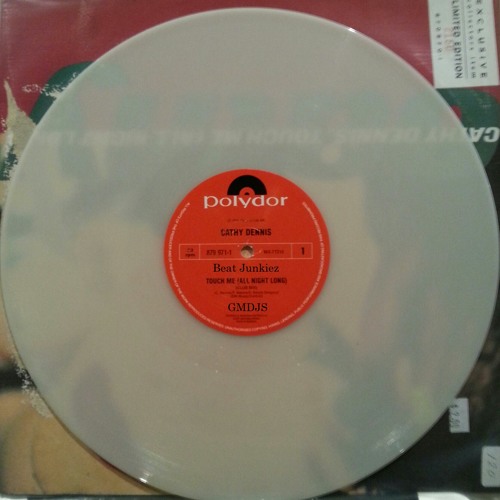

Leonard, as one can imagine, is not having an easy time. Henry: Your Freudian nightmare of a sibling is disrobing in the parlor.
#CATHY DENNIS ALL NIGHT LONG SERIES#
But this week, the series stops sidelining Leonard and treating his and Daniel's trauma like a fulcrum for other people's growth, with an opening that focuses directly on Leonard's ongoing experience in prison as Daniel dives into the bottom of a bottle. Last week spent time focused on Will and the parish moving on, Will trying to find the nerve to visit, Henry Jones hired as the new curate. This being 1958, being gay is illegal, and it led to him being put in prison two episodes ago. Grantchester began this season with one of its heaviest storylines to date, Leonard's sexuality coming out in public. 61, Weaver as Leonard Finch in 'Grantchester' Season 6 (Credit: Courtesy of MASTERPIECE and Kudos) Presented by Lyric Stage Company of Boston. Written and composed by Jason Robert Brown. When their marriage ends, Jamie is sad, but Cathy is shattered. “You are the story I should write - I have to write,” he sings at one point.

But then the musical has suggested early on that Jamie’s view of Cathy is at least partly instrumental, that his love for her might be equivocal, that he sees her as a muse. In a key scene when Cathy puts her highest romantic hopes into song, Jamie sits on a packing box, scribbling grimly on a pad. Framed by large silver rings and numerous smaller rings, the set is centered by a rotating turntable, and when Jamie sings “We’re fine, we’re fine, we’re fine” in one song, the turntable rotates rapidly, as if Jamie is trying to convince himself, even as we can see matters literally spinning out of control.

These alternating and conflicting accounts unfold on an expressive set by Lord that tells a visual story of its own, augmented by Karen Perlow’s atmospheric lighting design. Over the course of the 90-minute show, Cathy moves back in time, song by song, to their happy and hopeful start, in the kind of reverse-chronology narrative familiar from Sondheim’s “Merrily We Roll Along” and Pinter’s “Betrayal.” Jamie, meanwhile, starts at the buoyant beginning of their relationship and proceeds, song by song and phase by inexorable phase, toward their unhappy ending. When we first glimpse Cathy, she is sitting amid packing boxes, anguish etched into her features, reeling from the end of her marriage to Jamie. As Cathy stumbles upon an apparently troubling passage from Jamie’s book - is it an unflattering depiction of her? - we see a sudden look of consternation from Kira Troilo. Kudos to the six-member band, led by music director Dan Rodriguez.) As Jamie and Cathy pledge eternal love in “The Next Ten Minutes,” a flicker of doubt passes quickly over Jared Troilo’s face. (Not every musical benefits from the intimate confines of Lyric Stage, but a small-scale work like “The Last Five Years” does. Jared Troilo makes Jamie a bit more sympathetic than other productions of “The Last Five Years” that I’ve seen, though some in the Lyric Stage audience did gasp at Jamie’s cruelty when he tells Cathy in song, joltingly, that “I will not lose because you can’t win.”ĭirector Barrett conveys the complexity of the marriage with quietly deft touches.
#CATHY DENNIS ALL NIGHT LONG FULL#
Both Troilos communicate the full measure of ardor, humor, and aching loss in Brown’s quasi-autobiographical musical. They’re evenly matched in “The Last Five Years,” whether performing separately (nearly all of the songs are solos) or together (in the brief moments when Jamie and Cathy directly interact). She has done some of her best work as a performer at the Clarendon Street theater, including remarkable back-to-back turns in 2017 as cyclonic stage mother Mama Rose in “Gypsy” and then, just a couple of weeks later, as wayward warbler Florence Foster Jenkins in “Souvenirs.” “The Last Five Years” marks the first time Barrett has directed at Lyric Stage. Her stars, the real-life husband and wife Jared Troilo and Kira Troilo, acquit themselves not just admirably but beautifully, in terms of both story and song.īarrett, of course, is a very familiar name to Boston theatergoers, having long been a top singer-actress here. Scene by alternating scene, Barrett maps the musical’s emotional trajectory with a combination of subtlety and lucidity.

In other words, “The Last Five Years” is a thing of intricacy and delicacy, and much depends on the execution - a challenge director Leigh Barrett more than meets at Lyric Stage Company of Boston, with an invaluable contribution from set designer Jenna McFarland Lord.


 0 kommentar(er)
0 kommentar(er)
